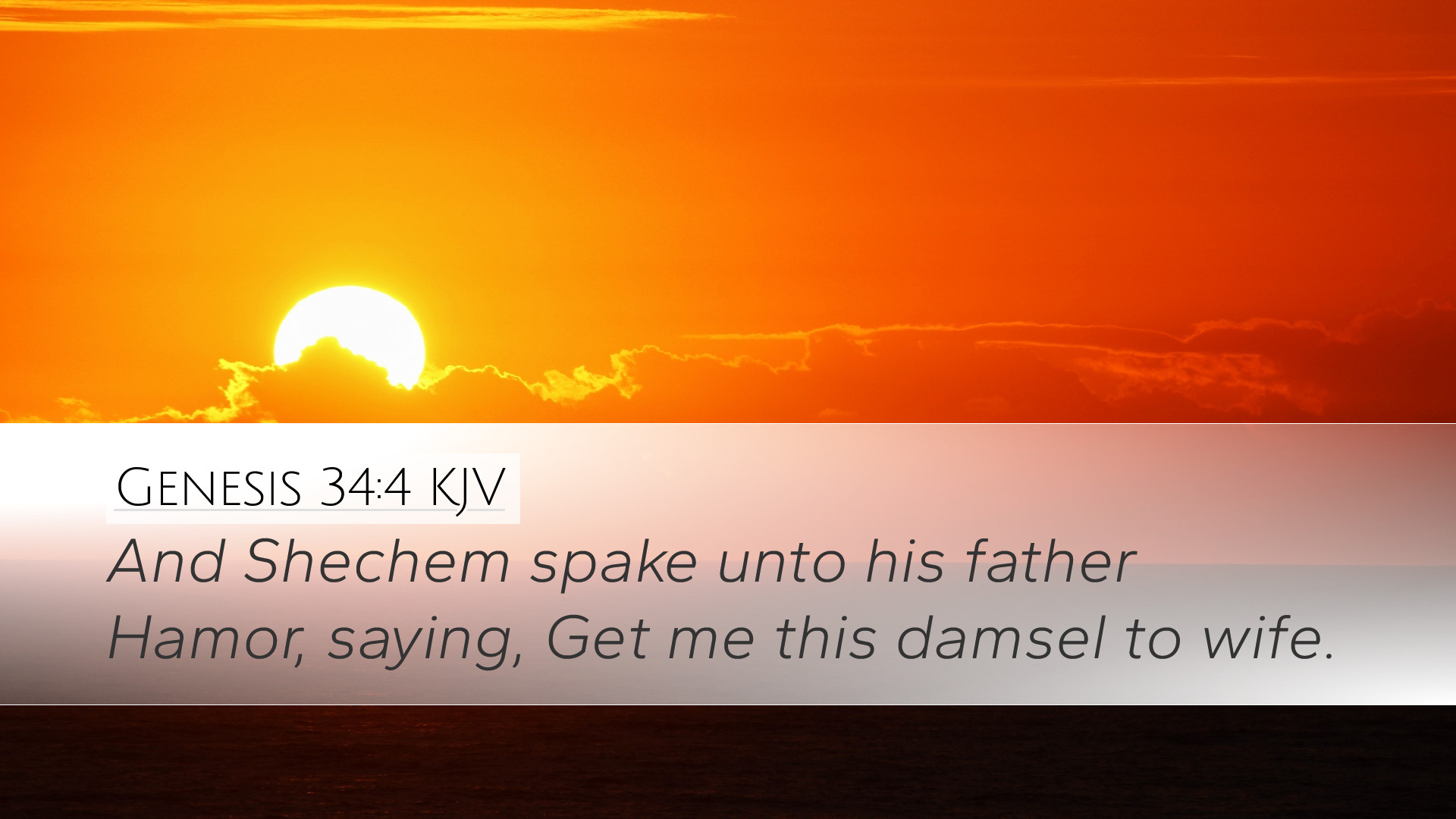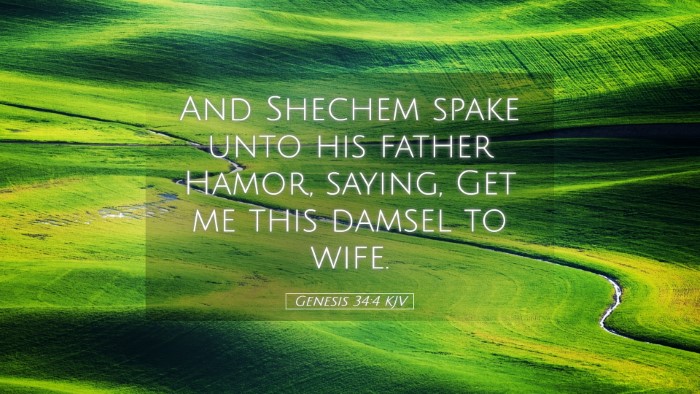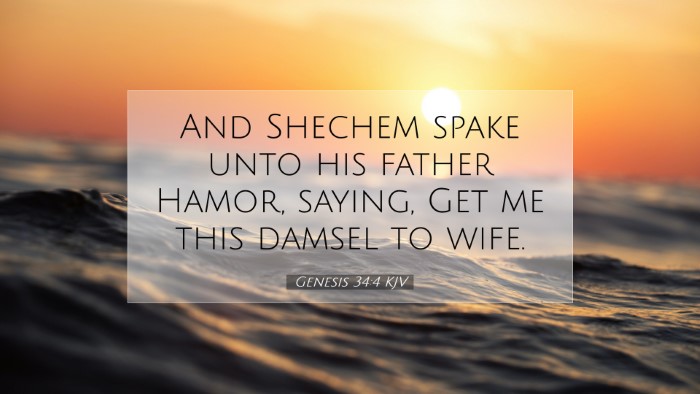Bible Commentary on Genesis 34:4
Genesis 34:4 states: "And Shechem spoke to his father Hamor, saying, 'Get me this girl for my wife.'" This verse occurs in a significant narrative that unfolds tragic and complex themes pertaining to love, power, and the dynamics of family and community.
Overview of the Context
The events of Genesis 34 take place shortly after Jacob and his family have settled in Shechem. This chapter introduces Shechem, the son of Hamor, who becomes enamored with Dinah, the daughter of Jacob and Leah. The verse signifies Shechem's desire for Dinah and sets the stage for the ensuing conflicts that encompass moral, ethical, and relational dilemmas.
Analysis of Shechem's Actions
The phrase "Get me this girl for my wife" reflects the impulsive and passionate nature of Shechem. As noted by Matthew Henry, his actions can be interpreted as the conduct of an unrestrained desire that disregards familial and cultural protocols. He assumes he has the right to pursue Dinah without considering the implications of her status and the dishonor brought to her family.
Albert Barnes points out that Shechem's proposal to his father reveals an underlying assumption of entitlement. He does not seek the girl's consent nor her family's approval, demonstrating a broader commentary on patriarchal dynamics and the objectification of women in this context.
Cultural Context and Implications
In the ancient Near Eastern culture, marriage was often arranged and involved negotiations between families. Adam Clarke emphasizes the audacity of Shechem's approach—he speaks to his father as if the desire is purely transactional. The lack of respect toward Dinah's family indicates a significant breach of cultural norms.
- Power Dynamics: Shechem, being a prince, embodies a sense of privilege that allows him to disregard the social ramifications of his desire for Dinah.
- Consequences: The relational rupture that follows this event demonstrates the far-reaching consequences of violating social codes.
Dinah's Role and Agency
Though Dinah is the object of Shechem's desire, her absence from active discourse in this verse raises critical questions about her agency. Henry illustrates that while the narrative primarily focuses on Shechem, it simultaneously highlights the vulnerability of Dinah in a male-dominated context.
The commentators elucidate the dangers of viewing Dinah merely as a prize to be won. Her presence and voice are crucial for a holistic understanding of this narrative. Barnes suggests that Dinah's lack of agency is emblematic of the broader societal treatment of women, complicating the moral landscape of the events that unfold.
Theological Reflections
Genesis 34:4 invites profound theological reflection on the nature of desire and its ethical implications. The love that Shechem expresses is complicated by its foundation in objectification. Clarke argues that true love is characterized by respect and care, elements conspicuously absent in Shechem's initial approach.
This incident offers a stark reminder of the need for integrity in relationships, accountability, and the pursuit of mutual respect—principles that resonate deeply within Christian ethics.
Conclusion
Genesis 34:4 encapsulates a moment that stirs a host of issues relevant to pastors, students, theologians, and scholars alike. By examining the implications of Shechem's actions, the cultural context, the theme of agency, and the moral underpinnings of this narrative, one can glean profound lessons on human relationships, the nature of desire, and the call for ethical living in community.
This commentary lays bare the intricate interplay between power and vulnerability, inviting all to consider how such ancient narratives continue to speak to contemporary issues of justice, honor, and the sanctity of human relationships.


